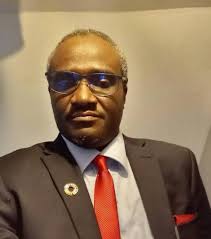A Nigerian rural development expert, Damilola Olajubutu, has taken Nigeria’s water access crisis to the international stage, calling for a fundamental shift in how water projects are designed and implemented. Olajubutu, who is the Executive Director of the Rural Nurture Initiative (RNI) and Coordinator of the African Rural Development Network, presented her argument during the United Nations General Assembly President’s meeting on Sustainable Development Goal 6 (SDG 6) and related multistakeholder events held on July 9 and 10, 2025.
Her advocacy focused on the need for community-driven water governance as a sustainable and effective alternative to conventional water development strategies that have largely failed in Nigeria and other parts of Africa. She argued that for Nigeria to solve its water crisis, the country must empower local communities to take ownership of water resources instead of relying on external agencies and high-tech interventions that often fail when foreign support ends.
Olajubutu’s presentation at the UN was backed by extensive field research conducted by RNI across Nigerian rural communities. She revealed that many water projects collapse because of the disconnect between what external agencies think communities need and what the people actually require. She explained that sustainability in water infrastructure is not determined by technological sophistication but by how much ownership the local population feels toward the project and their capacity to maintain it.
She told the UN delegates, “The lesson is clear: communities know their needs best. When we trust their expertise and support their choices, we create sustainable solutions that endure long after external support ends.”
One of the key features of RNI’s approach is the formation of gender-inclusive water committees within the communities. This ensures that women, who traditionally manage household water in rural Nigeria, have a voice in water governance decisions. According to Olajubutu, amplifying women’s voices in resource management is a critical element that has been missing in most water projects in Nigeria. She emphasized that when women are included, the chances of sustaining water infrastructure improve significantly.
“Our gender-inclusive water committees amplified women’s voices in resource governance,” she said, noting that this model provides a practical framework for addressing gender imbalances in Nigeria’s water sector.
During the stakeholder brainstorming sessions at the UN, Olajubutu called for policy reforms that will integrate rural development methodologies into water governance. She proposed that Nigeria should introduce mandatory rural inclusion quotas in water infrastructure projects, ensuring that rural communities are not sidelined in resource allocation and planning. She also stressed the need for effective monitoring and feedback mechanisms to ensure that projects remain functional over time.
Olajubutu’s advocacy comes at a time when over 60 million Nigerians still lack access to safe water. Nigeria has struggled for decades to provide sustainable water solutions, especially in rural and peri-urban areas. Many projects, backed by foreign donors or government initiatives, often fail due to poor maintenance and lack of community involvement.
Her economic argument for community-led solutions is equally compelling. She noted that involving communities in choosing the technology for their water infrastructure and combining this with WASH (Water, Sanitation, and Hygiene) education ensures that locals develop the technical skills and mindset needed for maintenance and sustainability.
The Nigerian expert also called for the 2026 UN Water Conference in Abu Dhabi to move beyond policy discussions and include practical case studies of successful community-driven water projects. She stressed that Nigeria, by showcasing RNI’s model, could position itself as a leader in sustainable water governance in Africa.
Olajubutu’s presentation not only reflects her rural development expertise but also places Nigeria within a broader continental conversation. “Across Africa, where hundreds of millions lack safe water, including Nigeria’s 60+ million people, communities are not just beneficiaries waiting for solutions but are partners with the knowledge and commitment to create lasting change,” she said.
Her approach, which aligns with participatory development principles, offers a clear roadmap for Nigeria to address its water challenges while influencing global water development policies. It suggests that if Nigeria invests in building local capacity and empowering communities to manage their water resources, the nation could see significant progress towards achieving universal water access.
As Nigeria continues to pursue its Sustainable Development Goals and address sectoral reforms, experts like Olajubutu are demonstrating that the solutions to the country’s persistent water crisis might already exist within the communities themselves—if only policymakers are willing to listen and adopt inclusive governance strategies.
“The communities are ready. The question is: are we ready to listen?” she asked in her closing remarks at the UN. This question remains particularly relevant for Nigeria as it seeks sustainable and scalable solutions to its water crisis.
